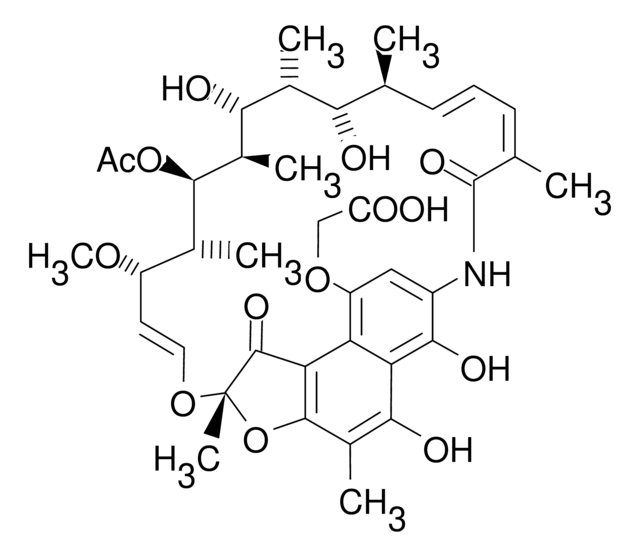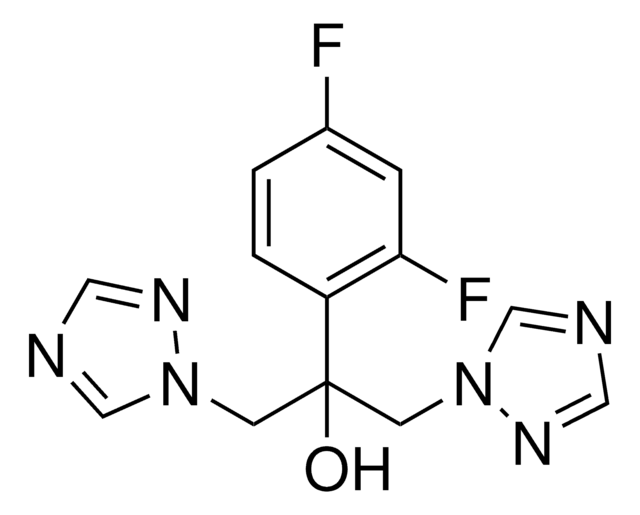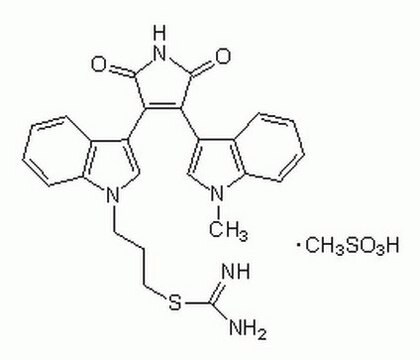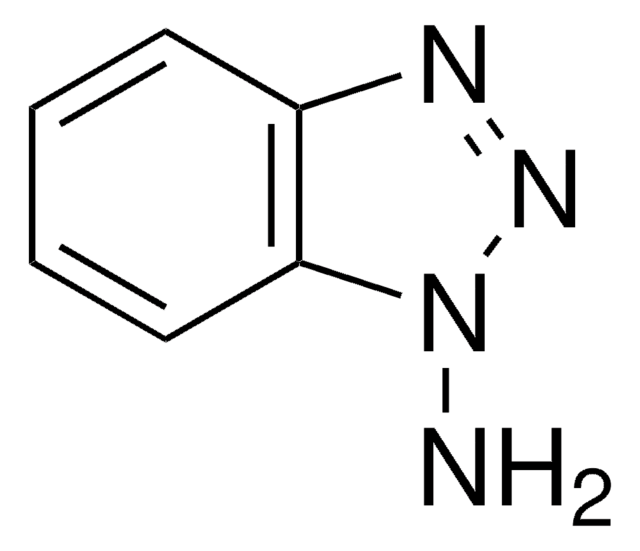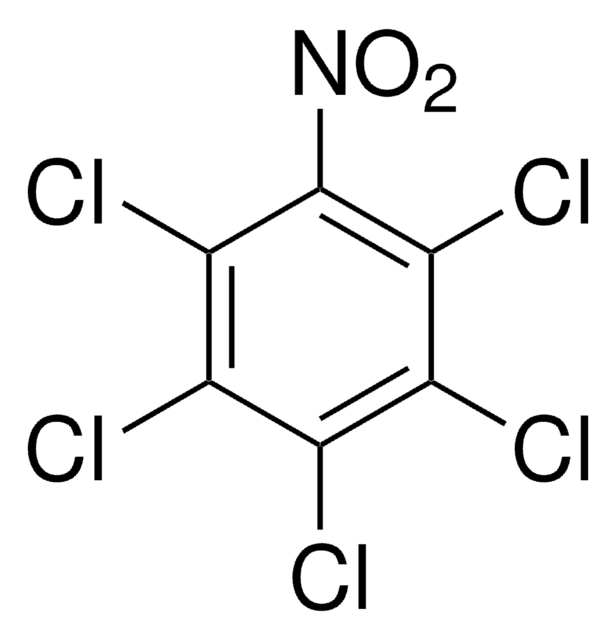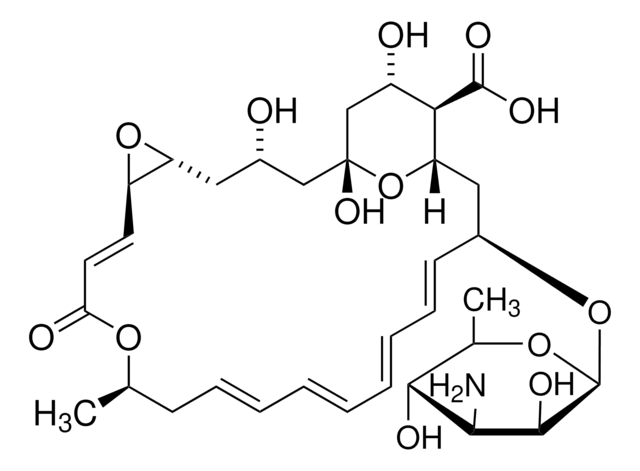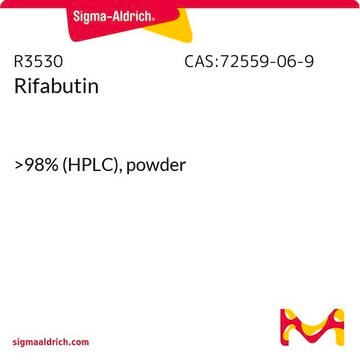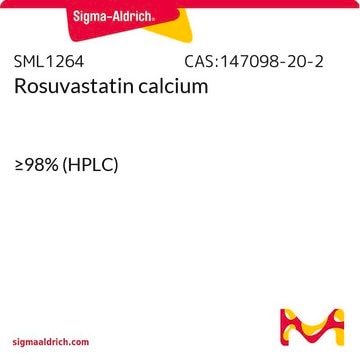R8626
Rifamycin SV sodium salt
potency: ≥ 900 IU/mg (anhydrous basis)
Synonym(s):
2,7-(Epoxypentadeca(1,11,13)trienimino)naphtho(2,1-b)furan-1,11(2H)-dione, 5,6,9,17,19,21-hexahydroxy-23-methoxy-2,4,12,16,18,20,22-heptamethyl- 21-acetate monosodium salt, Rifamycin SV monosodium salt
About This Item
Recommended Products
form
powder
Quality Level
potency
≥ 900 IU/mg (anhydrous basis)
solubility
ethanol: soluble 50 mg/mL
antibiotic activity spectrum
Gram-negative bacteria
Gram-positive bacteria
mycobacteria
Mode of action
protein synthesis | interferes
SMILES string
[Na+].CO[C@H]1\C=C\O[C@@]2(C)Oc3c(C)c(O)c4c(O)c(NC(=O)C(C)=C\C=C\[C@H](C)[C@H](O)[C@@H](C)[C@@H](O)[C@@H](C)[C@H](OC(C)=O)[C@@H]1C)cc([O-])c4c3C2=O
InChI
1S/C37H47NO12.Na/c1-16-11-10-12-17(2)36(46)38-23-15-24(40)26-27(32(23)44)31(43)21(6)34-28(26)35(45)37(8,50-34)48-14-13-25(47-9)18(3)33(49-22(7)39)20(5)30(42)19(4)29(16)41;/h10-16,18-20,25,29-30,33,40-44H,1-9H3,(H,38,46);/q;+1/p-1/b11-10+,14-13+,17-12-;/t16-,18+,19+,20+,25-,29-,30+,33+,37-;/m0./s1
InChI key
YVOFSHPIJOYKSH-NLYBMVFSSA-M
Looking for similar products? Visit Product Comparison Guide
Related Categories
General description
Application
Biochem/physiol Actions
Packaging
Other Notes
Storage Class Code
11 - Combustible Solids
WGK
WGK 3
Flash Point(F)
Not applicable
Flash Point(C)
Not applicable
Personal Protective Equipment
Certificates of Analysis (COA)
Search for Certificates of Analysis (COA) by entering the products Lot/Batch Number. Lot and Batch Numbers can be found on a product’s label following the words ‘Lot’ or ‘Batch’.
Already Own This Product?
Find documentation for the products that you have recently purchased in the Document Library.
Customers Also Viewed
Our team of scientists has experience in all areas of research including Life Science, Material Science, Chemical Synthesis, Chromatography, Analytical and many others.
Contact Technical Service
